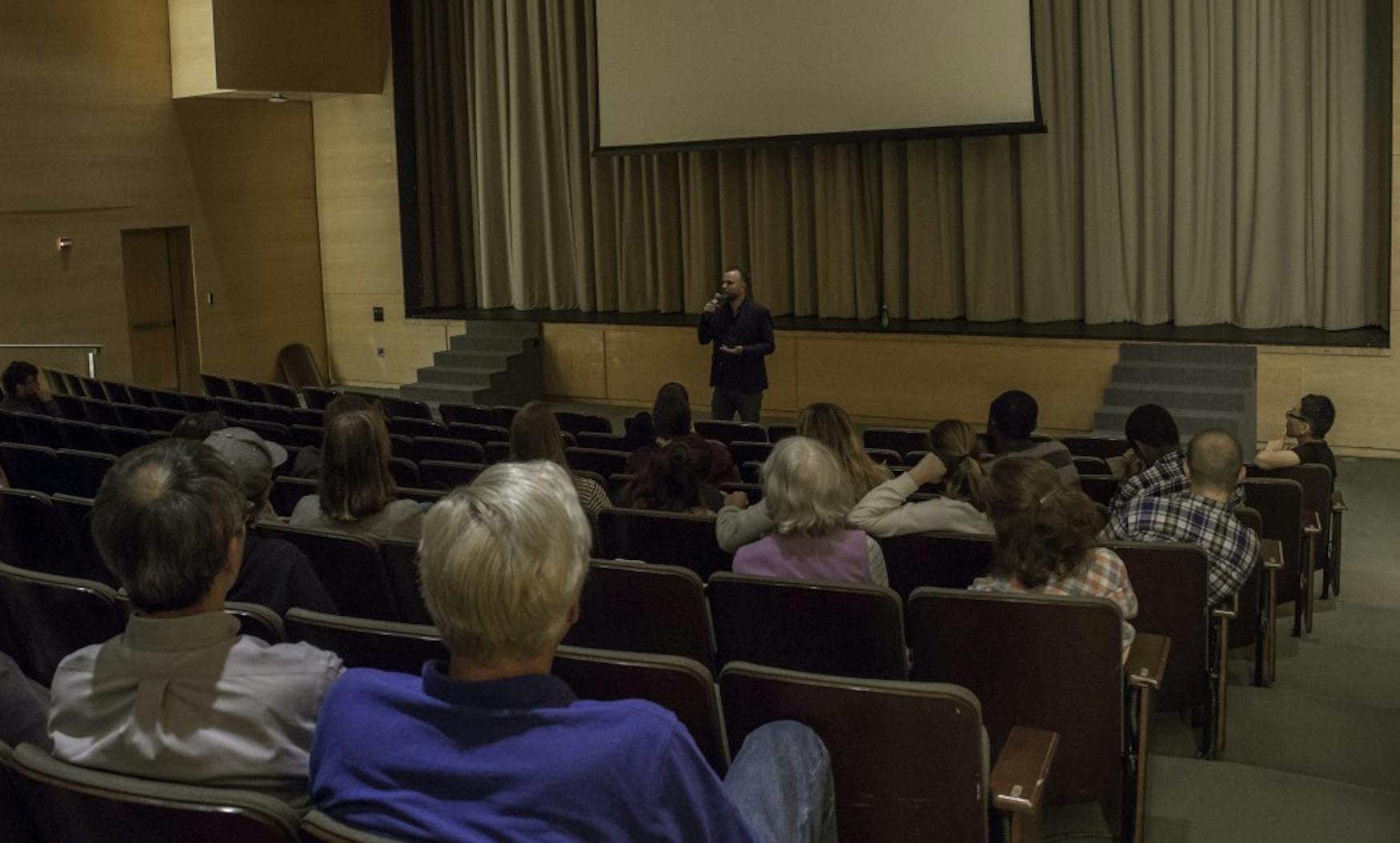Documentary explores attempts to implement an unconditional basic income
The idea that every person should receive an unconditional basic income (UBI) each month, just for being alive, has generated conflicting opinions among economists and policy makers for years. Members of the Brandeis community and outside guests gathered to learn about this unorthodox economic idea last Thursday when Austrian filmmaker and economist Christian Tod presented his documentary on the subject, “Free Lunch Society: Komm Komm Grundeinkommen,” or “Free Lunch Society: Come Come Basic Income.”
Under a system of unconditional basic income, also called guaranteed basic income or a negative income tax, the government would pay all citizens a set amount of money each month or year to cover basic living expenses. As the Goethe-Institut’s description of the event put it, “An unconditional basic income means money for everyone — as a human right without service in return.”
In the film, proponents of UBI argue that if implemented effectively, such programs would “decouple work from income.” The economists, researchers and activists who are quoted in the film underscored the importance of this decoupling: When workers can leave jobs without fear for their own well-being, they are free to pursue more fulfilling work.
Researchers interviewed in the film refute the idea that a guaranteed basic income would encourage people to be lazy and stop working. One proponent quoted in the film points out the hypocrisy of this reasoning: When asked, people deny that it would impact their own work ethic, yet they argue that it would impact the work ethics of others. Thus, accepting a guaranteed basic income plan involves trusting those around you to use the money honestly.
The film also examines the history of UBI experiments. The common factor in all of these attempts was the “unconditionality,” Tod explained. “Everybody should be eligible, and nobody should have to do something in order to get it.”
Alaska provided the first UBI model explored by the film. The discovery, and subsequent extracting of oil reserves in 1969, generated massive revenues for the state. With the sudden influx of money, the state created the Alaska Permanent Fund, from which all eligible Alaskan residents who apply are paid an annual dividend. Eligibility is determined by a series of rules regarding residency in the state. The dividend amount fluctuates from about $1,000 to $2,000 depending on the year.
The film then turns to entrepreneur Peter Barnes, who wants to extend the approach used by Alaska. He believes everyone should be paid dividends from the money created from the use of natural resources such as “land, water and air,” especially to create energy. Barnes argues in the film that since that capital comes from nature, which is communally owned, every American should receive a portion of it.
In the Canadian small town of Dauphin, Manitoba experimented with basic income in the 1970s. Called “Mincome,” the experiment attempted to determine the social effects of basic income. The film shows the massive number of meticulous records kept by the researchers during the program’s duration but noted that the program ended suddenly in 1978, allegedly due to a lack of funding, without publishing a final report.
In the United States, presidents were starting to consider basic income policies around the same time. A commission appointed by President Lyndon B. Johnson recommended implementing such a program. Soon after, President Richard Nixon tried to replace the American welfare system with the Family Assistance Plan, which would have established a “negative income tax,” although the plan never passed Congress.
Yet not all basic income experiments are government-funded, and the film also highlights an experiment in a Namibian village funded by a Lutheran bishop. With the guaranteed income, people were able to pay for school, medicine and entrepreneurial supplies such as sewing machines. Those quoted in the film remarked on how this experiment disproves the idea that basic income inspires laziness, as villagers were able to work more because of the opportunities the money facilitated.
After the screening, Tod addressed audience questions and expanded on the benefits he believes would come about as a result of implementing an unconditional basic income. One audience member asked if UBI would exacerbate the social and environmental problems of modern consumerism by increasing citizens’ capacity to spend.
Tod said that the opposite would be true, saying, “Most things we spend money on in Western societies … it’s more about sensation. We buy stuff we don’t need in order to feel good, because we don’t have any time to do something that we really want.” The security of a basic income, he said, would give people time to evaluate their purchases, leading to “more considerate consumption.”
Tod also said he sees UBI as the foundation of democracy. “[UBI is] not only a redistribution of money, but … a redistribution of power, from the very few to all of us,” he said. He believes UBI will give society the time and freedom to “solve all the other big issues, like climate change or nationalism and fascism.”
This event was hosted by the the Brandeis Center for German and European Studies and the Goethe-Institut, a German cultural institute.



Please note All comments are eligible for publication in The Justice.